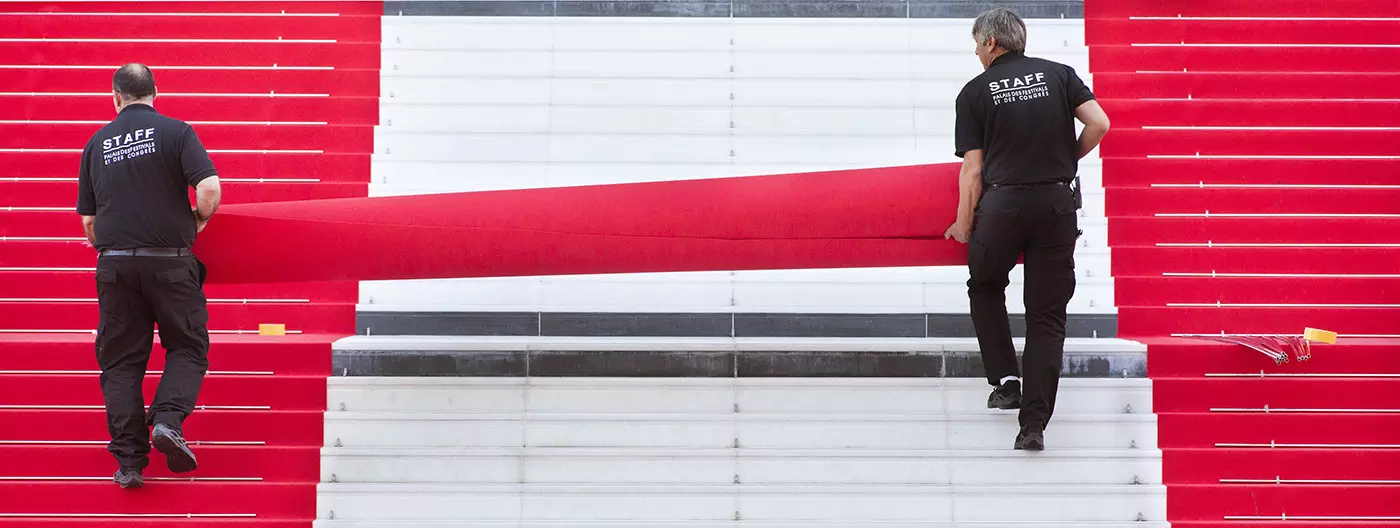
The Palais des festivals et des congrès holds four different certificates (ISO 9001, ISO 14001, OHSAS 18001 and ISO 26000) and sets high sustainable development standards. Veolia is responsible for managing all the waste generated by the Palais and in 2017 achieved a 93% waste recovery rate, which is higher than that set under France’s “Grenelle de l'Environnement” legislation (75%). The group processed 1,280 tonnes of industrial waste at its Valazur facility, 290 tonnes of wood (category B waste) at its Villeneuve-Loubet plant, and 105 tonnes of paper-cardboard waste at its Carros sorting platform near Nice, with this being used to supply the paper industry in France and Europe.
Veolia also recovered bio-waste from the eating areas and organised new recycling channels for scrap and plastic film.
Recycling the famous Cannes Film Festival “red carpet”
83 rolls of red carpet covered the 26,000m² floor space in the Palais and 8,000m² of that carpet were used on Cannes’ famous 24 steps in order to welcome participants to the 71st Cannes Film Festival.
In 2017, Veolia handled 83 tonnes of used carpet in its Carros sorting centre near Nice. It is sorted, shredded and transformed into polypropylene granules, a secondary raw material, which is then re-used by the plastics industry, for example in the manufacture of car bumpers and dashboards.
Aim: recover 100% of the waste
Veolia deployed a 24/7 waste system for the Palais. The number of skips varied depending on the day’s events and a waste compactor was adapted to the Palais’ activities and the diverse types of waste generated. Veolia is helping to improve waste sorting (41% of materials were sorted at source during the festival), reduce the volume of waste, and facilitate recycling by advocating the use of carpets without underlay.

